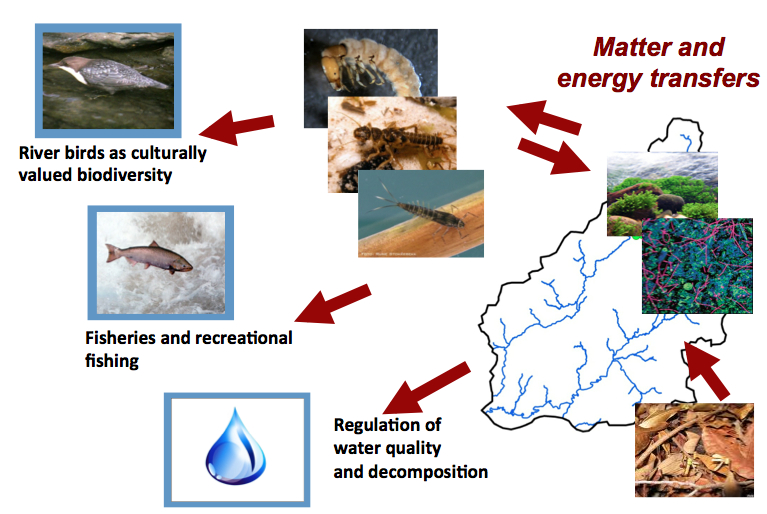Rivers exchange matter and energy laterally with the catchment or riparian zone and longitudinally from headwaters to the coast. These transfers influence the quality and rate of services delivered by river ecosystems and their landscapes, and many are mediated by in river organisms.
Primary energy sources from within the river or surrounding catchment are transferred through food webs to deliver two of the key ES on which DURESS will focus: fish production and river birds as culturally valued biodiversity. Fish, in turn, contribute to fisheries and recreational fishing. River biota also regulate key ecosystem service functions such as decomposition and organisms such as microbes regulate water quality.
The services investigated in DURESS are thus three main final services (fish production, water quality and cultural value) and one intermediary service (decomposition). This choice represents river ecosystem services that are highly dependent on organisms, sensitive to disturbance and variable in market value.

